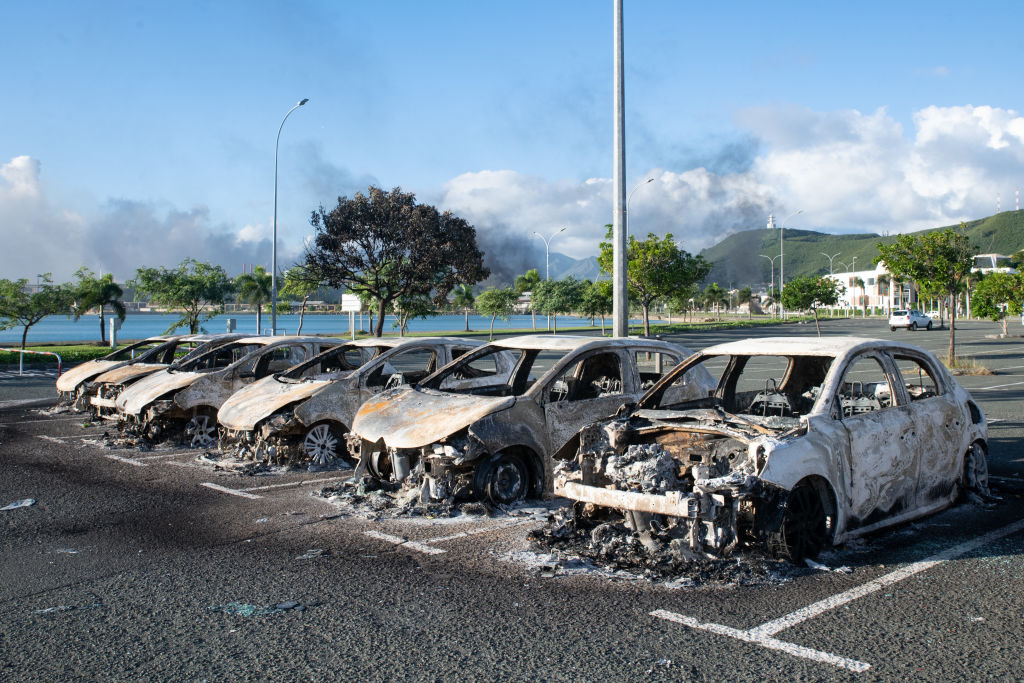Jack’s Law, is named after the 2019 stabbing death of 17-year-old Jack Beasley and equips police with wands to detect knives in high-crime areas.
A spate of recent knife attacks in Australia has led the Queensland government to propose an extension until at least 2026 to the trial of handheld metal detector wands, proposed under “Jack’s law.” However, the idea has met with opposition from an MP and civil liberties groups who see it as an overreach of police powers.
The trial has been hailed as a success, and other states, in particular New South Wales (NSW) are expected to follow suit with their trials on the back of the recent Bondi Westfield attack in Sydney.
Premier Steven Miles announced on Tuesday the extension of the trial as a key component of a new $1.28 billion (US$837 million) community safety plan.
“We’re proud to give police the funding and resources needed to support their operations. Jack’s Law has proved effective in saving lives and by giving all frontline police the tools they need to keep Queenslanders safe,” he said.
Jack’s Law, is named after the 2019 fatal stabbing of 17-year-old Jack Beasley on the Gold Coast by a 15-year-old boy who was sentenced to 10 years imprisonment. His legacy provides police to search people with wands in high crime precincts and public transport hubs, and issue penalties for unlawfully possessing a knife in a public space.
Now, the government is looking to extend the scope to areas like petrol stations, pubs and retail spaces.
Jack Beasley’s parents, Brett and Belinda Beasley said they wanted to “thank the government for expanding the law named after our son Jack.”
“We still miss Jack desperately, but initiatives like the expansion of police wanding operations to so many more venues means Jack’s legacy will continue to save even more lives. More weapons off the streets means safer streets and more lives saved, and anything that supports those goals is very welcome,” they told reporters.
 Queensland Minister for Police Mark Ryan said an additional 3,000 wands will be purchased for police. (AAP Image/Glenn Hunt)
Queensland Minister for Police Mark Ryan said an additional 3,000 wands will be purchased for police. (AAP Image/Glenn Hunt)New Crime-Fighting Package Hailed by Stakeholders
Along with the extension of Jack’s Law, Police Minister Mark Ryan said an investment of $900,000 will support the purchase and delivery of an additional 3,000 wands, bringing the total number in operation to over 4,500.
The plan will also provide additional funding to hire 900 more police personnel, provide 1,000 more tasers, two new helicopters, and programs to keep young offenders out of trouble.
Queensland Police Union President Ian Leavers thanked Premier Miles for “listening to police and broadening the trial.”
“The use of the wand by frontline police has been so effective there has not been a single complaint made when officers have intercepted somebody to undergo a scan,” he said.
“Frontline police developed the rollout and training for the detection wand in a very short time frame and its use has removed potentially lethal weapons from the community.”
Justin Power, secretary of the Shop Distributive Allied Employees Association (SDA), said after hearing “terrifying” stories from members about being threatened by knives at their workplaces, the trials expansion and investment in law enforcement was welcomed.
“Unfortunately, a recent SDA survey has shown that the level of physical abuse that retail workers are subjected to has grown from 8 percent of respondents to 12.5 percent in the last two years,” he said.
“The expansion of Jack’s Law to Shopping Centres sends a clear message that the government does not tolerate this behaviour and will help to make our members safer in their workplaces.
“No one deserves a serve in our shopping centres, least of all our retail staff who are just doing their best to look after the public and support their families.”
Trial Comes Under Criticism
While police figures that say more than 500 weapons have been seized across 4,000 wanding operations, the Queensland Council for Civil Liberties (QCCL) has questioned the alleged success of the trial.
Citing a Griffith University study, QCCL president Michael Cope said there was no evidence of reduced offending or increased confiscation of weapons.
Mr. Cope also cited a Metropolitan Police report from the UK in which a scrutiny panel found that disproportionate stop and search practices caused those affected to feel insecure, anxious, intimidated, and helpless.
He is opposed to any expansion of use in other public areas.
“And to the shock of no one who has studied the increase in police powers, this is what has happened. First, it was extended to public transport. Now to shopping centres, licensed premises, sporting and entertainment venues and ‘high-risk retail outlets,’ vindicating our concerns,” he said.
“How are these places distinguishable from any other public place ... no doubt one day the police will want these powers extended more broadly.
“This proposed law, like many tough-on-crime measures, is being proposed in response to a most tragic situation. Public policy has to have regard to a broad range of considerations ... extending beyond the circumstances of any single case, no matter how tragic.”
QCCL’s objections also found favour with Liberal Queensland Senator Matt Canavan, who said he was concerned about the implications of allowing police to “spot check” people.
“We are a free country and I just don’t like the idea that you could just be randomly treated as a criminal by going to get your bread and milk at the shops,” he told the Nine Network on Wednesday.
Acting Deputy Commissioner Chris Stream disagrees with Mr. Canavan’s statements’ saying the trial’s expansion meant safer spaces for Queenslanders.
“You should not be carrying a knife in a public place in Queensland. More wands mean more police keeping dangerous items out of the hands of young criminals and reducing the devastation which can result from possessing a knife, including lifelong trauma for the victims, their families, and the community.”














 English (US) ·
English (US) ·  Turkish (TR) ·
Turkish (TR) ·